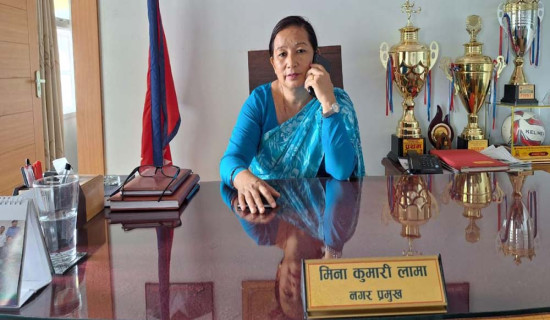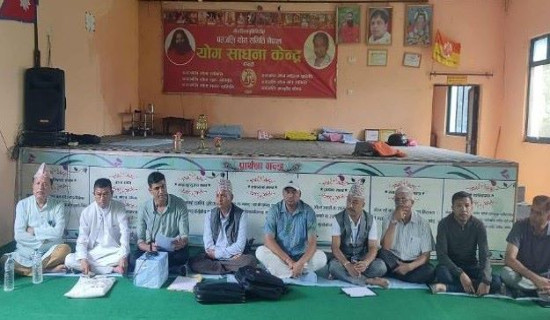- Sunday, 31 August 2025
Education Bill Pushes School Reforms
The School Education Bill 2023 has been under parliamentary review for 21 months, making it one of the most debated bills in recent decades. On the one hand, the bill represents a significant shift from the previous Education Act, mainly because of the transition from the unitary system to federalism. On the other hand, it fails to capitalise on the historic opportunity to transform the school education sector. The amendment proposals from members of parliament suggest that the bill hardly departs significantly from existing education provisions, even after more than half a century. This can have far-reaching implications for a more equitable, inclusive, and robust education system.
On the whole, the bill assigns key roles and responsibilities related to basic and secondary education to local governments. As per its provisions, the local governments are authorised to establish both public and private schools and Early Childhood Education and Development Centres, conduct the school mergers based on school mapping and deploy teachers within their jurisdiction. Most of these roles and responsibilities were previously under the jurisdiction of the higher-level authorities. Hence, this shift suggests a significant change in school education governance in the context of federalism, which has resulted in intense debates and discussions among stakeholders.
Competency under question
The powers and functions assigned to local governments have been contested among stakeholders, as some of them have questioned their competence in carrying out their due roles and responsibilities. For example, Nepal Teachers’ Federation, an umbrella organisation representing various teachers’ associations, has raised concerns over provisions in the bill that they would have to remain under local authorities. Instead, they have expressed that they would like to be governed by the federal government, as in the past, which goes against the constitutional provision. Moreover, they are more concerned about their professional growth, stability, and security within the existing system, as indicated in the street protests at different times.
The increased supervision of local governments makes them feel insecure. Nonetheless, this shift in governance is necessary for developing the education sector by ensuring accountability and responsiveness at the local level. The amendment proposals submitted by fifty-two members of parliament indicate that their suggestions remain confined within the framework set by the existing bill. Consequently, they have shown little initiative to envision a transformative future for the school education sector, especially in the context of the significant social, political, and economic changes in recent decades.
The amendment proposals mostly appear to be a ritualistic exercise rather than meaningful reform. A detailed review shows a heavy focus on teacher-related issues – out of the ten most debated topics, five of them relate to teachers. These include teacher recruitment, reconciliation of teacher quotas and handovers, appointment of head teachers, teacher transfers, and qualification criteria. The uniformity in language across numerous amendment proposals shows coordinated lobby and advocacy by teachers’ associations and organisations, through political channels to members of parliament, reflecting strong linkages between these associations and various political parties. Overall, the amendment proposals mostly focus on issues related to teachers, the examination system, and school governance.
However, the provincial-level consultations that took place between 24 December 2024 to 27 January 2025 at the initiative of the Education, Health, and Information Technology Committee of the House of Representatives focused on a broader range of concerns on the bill. In these consultations, stakeholders have raised critical questions regarding free education, the future of private schools, the separation of powers across different levels of government, quality education, school mergers, Early Childhood Education and Development Centres and their staff, curriculum, school leadership, medium of instruction, and the politicisation of teachers, among others.
Insights
The insights collected from these consultations are slightly different from those of the amendment proposals submitted by members of parliament, as discussed and shared above. The fact that the government conducted these consultations using taxpayers’ money, the insights, views, and opinions gathered from provincial-level stakeholders should have meaningfully informed the amendment process of the bill to make it more consistent, pragmatic, and visionary. Instead, as in the past, various interest groups exerted significant influence during the process.
For instance, private school operators opposed the proposed strict measures targeting the private education sector. It was only after their concerns were addressed that the government was able to formally introduce the bill in parliament. This pattern shows a persistent challenge - the excessive influence of interest groups often hinders the development of realistic, relevant, and progressive policies that serve the broader public interest. In this context, the state must adopt a clear, consistent, and assertive approach to strategically engage interest groups in the policymaking process to ensure citizens’ fundamental rights.
(Budhathoki is Education Programme Manager, REED Nepal.)















